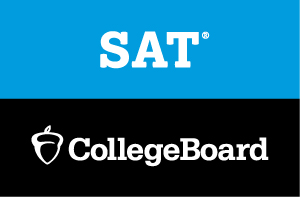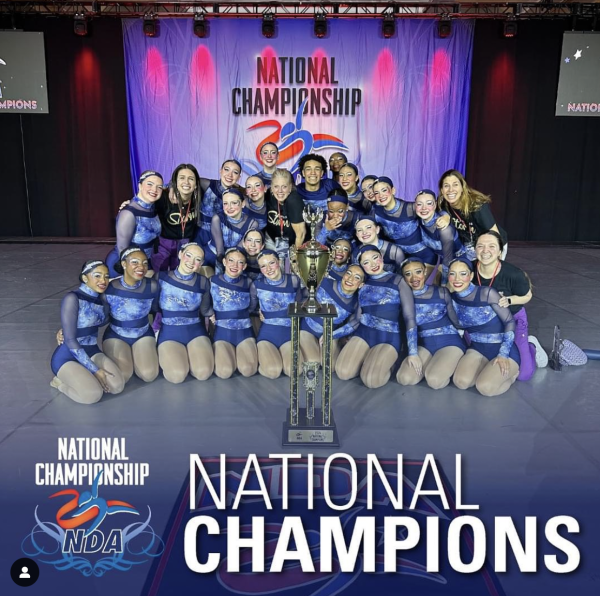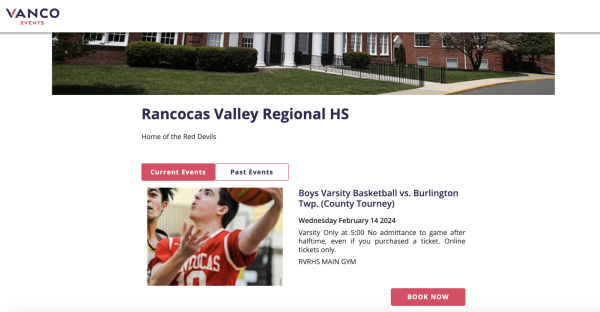The beginning of the end for SATs and college admission culture
The College Board announces an end to SAT essays and subject testing

Photo courtesy of the College Board
January 28, 2021
Remember that three-foot high stack of SAT prep books, the one that has been sitting in the corner of your room? We all know that they make great weapons, highchairs and tissues for stressed-out tears, but juniors, seniors, alumni and teachers, you are now encouraged to remember those books – if they have not yet been sold off or chucked into the phone book pile. For nearly 100 years the SATs have been a main staple of the college application experience, but in the time of COVID and a quickly-developing digital schooling environment, the College Board has announced that changes are coming.
The optional SAT essay and subject tests will no longer be given after June 2021, according to an announcement made by the College Board on January 19. Any subject tests scheduled for spring of 2021 can be canceled and test-takers will be receiving full refunds, but will still be offered to international students until June. A digital version of the main SAT is slated to become the new norm, given at testing centers with live proctors, unlike last year’s AP exams which were given at home, causing some controversy and a subsequent lawsuit.
In April of 2020, a similar announcement was made by College Board President David Coleman, stating that due to school closures, the SAT would be offered virtually, but this plan was canceled abruptly with no explanation, and the SATs were simply postponed. The recent announcement from the College Board claims to be “investing in a more flexible, SAT…a streamlined, digitally delivered test that meets the evolving needs of students and higher education.”
Why make such large changes now? According to College Board, “As students and colleges adapt to new realities and changes to the college admissions process, the College Board is making sure our programs adapt with them. We’re making some changes to reduce demands on students.” The statement has been criticized for its lack of specifics, and has caused other theories to arise throughout the public as the College Board has been heavily criticized in the past, especially in relation to profit margins. Theories alternate between becoming more available for lower-income students and losing money after fewer students are signing up to take the subject tests.
Despite being a non-profit organization, the College Board has a yearly revenue of nearly $1 billion according to their own most recent public tax filings in 2018 and is estimated to have lost almost $200 million in funds from canceled SATs as of September 2020 alone.
“I think (the) College Board is telling a half-truth,”said RV 2019 alumnus and current Norwich University sophomore Daniel Gribben. “They are trying to make it more convenient and accessible but that’s also due to it being a possible way for them to make more money. It is a business, so the bottom line is to always make some profit for sure. Saying that though, there are for sure some good hearted people at that company. There has to be, right?”
Gribben holds the common belief that the organization is keeping its deeper motives silent, but has a more positive outlook for the sake of the students.
“I know that given such an option earlier on, I wouldn’t have taken it, especially to save money,” said Simran Kaur, an RV senior. “With the test and SAT prep books, it can cost closer to $100, not including other fees, and I know I’m not the only one who doesn’t want to spend that kind of money when I know it does not need to be that expensive.”
The price of the SAT and other placement tests has been a bother to students for years. Despite fee waivers, many feel as if it is still too much when taking additional college application fees into consideration.
Subjective to college application fees and every difficulty that anyone who applies faces, colleges across the country have been stepping up throughout the pandemic to announce that admissions are now test-optional, varying between fall 2021 until 2023 (or potentially indefinitely). According to FairTest, a watchdog organization, more than 1600 colleges are not requiring applicants to submit scores for fall of 2021. This trend began revolutionarily in 2012, when the University of California announced that it would stop requiring subject tests, and hundreds of other larger schools such as Harvard and University of Pennsylvania followed suit.
“It’s kind of nice, I mean, a lot of colleges already ask for so much and so many essays so by eliminating [the SAT], it makes it a little easier for the students, mentally and financially,” said Kaur. “It’s better for students because it gives them the opportunity to choose. If you think you will do well on it and it will reflect positively, then do it, but if not, it’s better to put your energy towards something else you’re good at.”
By allowing students to make a choice based on what best fits their skillset, some believe that it would allow many more the opportunity to be accepted and judged by schools and not be held back by their timed test-taking skills.
“Honestly it makes me feel almost relieved for the next generations coming up in high school, but also a little bit worried,” Gribben said. “The SAT sucked and isn’t a good college entrance exam, but it gave an objective for kids to beat and I hope that colleges will be able to do something similar if they do their own entrance exams.”
In November, the University of California once again became a frontrunner in this development, saying that it would be test-blind this upcoming year and onward, also pushing the idea that the university will have the possibility of developing their own admissions test. If other colleges follow a similar path in upcoming years, the College Board may begin scrambling to make up for a lack of SAT-takers and possibly majorly change or abolish the test altogether.
“It’s a good way for students who are better at test taking to show off their skills so I do not think it will completely go away, but the amount of students taking it will definitely decrease,” Kaur said.
If there is a possibility of the SATs no longer existing, the alternatives could be either individual to the college or perhaps another standardized test would step up to the national level, such as the ACT.
In response to this idea, Gribben suggested another option. “I think it’s good for colleges to give their own exams, absolutely,” he said. “It’s more personalized for the schools, but it will mean more application work for the students. I like the idea of having a national standards test, but in practice, it can prove to be way more biased, corrupt and cheat-able. But, if people wanted to focus more on the subjects again and overall college aptitude, they could make some type of civilian ASVAB test… but that may come off as a little too much from a dystopian novel.”
The ASVAB, otherwise known as the Armed Services Vocational Aptitude Battery, is a multiple choice test given by the Department of Defense to help young people measure their aptitude and find the best-suited career path in the military. It gives a general idea of your levels in math, mechanics and different sciences, and all the while being a percentile test, which many may find more palatable than the SAT.
If a civilian version of the ASVAB is created, it would need to be expanded extensively to include the possibility of any and all career paths, similar to quizzes given on applications like Naviance, which commonly are used to help students get an idea as to where their personality and interests best fit in colleges and the workforce.
As more changes and updates are to come with the ongoing pandemic and development of digital learning increases, standardized testing and college admissions are actively bending and beginning to fracture from each other, like that weird plank that’s been kept in the attic for a little too long. With the lessening of test-takers and the provision of choice, many can’t help but wonder if this is the beginning of the end for the SATs.










